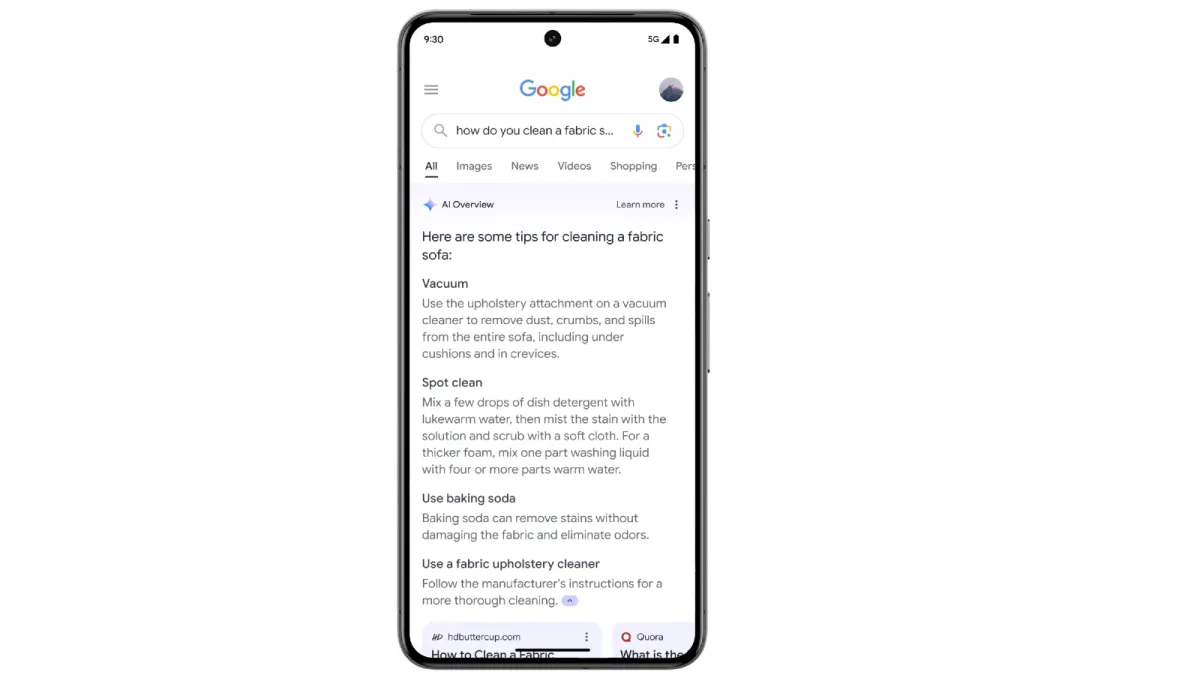
Google today introduced an update to its search engine, integrating generative AI functionalities specifically focused on summarizing search results. This update, centered on AI-powered summaries, presents both challenges and opportunities for marketers navigating the evolving search landscape.
Users will now encounter summaries alongside traditional blue links in search results for certain queries. According to Google, these summaries aim to:
Condense Information: Quickly convey the key points of lengthy webpages, allowing users to grasp the content's essence without requiring them to visit every website.
Enhance User Experience: Provide users with a more efficient way to scan search results and identify the most relevant pages for their needs.
Refine Search Intent: AI summaries might even guide users towards refining their search queries based on the information presented in the summaries.
While AI summaries might influence click-through rates, it's crucial for marketers to maintain a holistic approach to SEO (Search Engine Optimization). Here's why:
Brand Building and Trust: High-quality content that delivers on its promise fosters brand trust and encourages users to return for future searches, even if they don't click through from the initial AI summary.
Long-Term SEO Strategy: Factors like backlinks, user engagement metrics, and overall website authority remain crucial for long-term SEO success. Creating valuable content that users find informative and engaging continues to be essential.
The integration of generative AI functionalities within Google Search has the potential to significantly impact the "blue link economy" and publishers in several ways:
Reduced Click-Through Rates: AI-powered summaries within search results might provide users with enough information directly on the search page, potentially leading to fewer clicks through to publishers' websites. This could negatively impact website traffic and ad revenue for publishers.
Increased Competition for Attention: The ability to explore content variations through AI functionalities could lead users to discover a wider range of content from a variety of sources. This creates a more competitive landscape for publishers, requiring them to create high-quality, differentiated content to stand out and capture user attention.
Dependence on AI Algorithms: The success of a publisher's content in the new search landscape might become more dependent on how well it aligns with Google's AI algorithms for summarization and ranking. This could lead to a homogenization of content and potentially stifle creativity within the publishing industry.
For publishers to thrive in this evolving search environment, it's crucial to:
Focus on High-Quality Content: Creating informative, well-written, and engaging content remains paramount.
Optimize for User Intent: Understanding user search intent and tailoring content accordingly will be essential for attracting clicks.
Embrace Data-Driven Strategies: Utilize data from search results interactions to refine content strategy and improve user experience.
Maintain Authenticity and Brand Voice: While AI can be a powerful tool, it's important to maintain a distinct brand voice and avoid content that feels overly formulaic.
The impact of generative AI on the blue link economy remains to be seen. While challenges exist, it also presents opportunities for publishers who can adapt and leverage these functionalities to create high-quality content that resonates with users.

